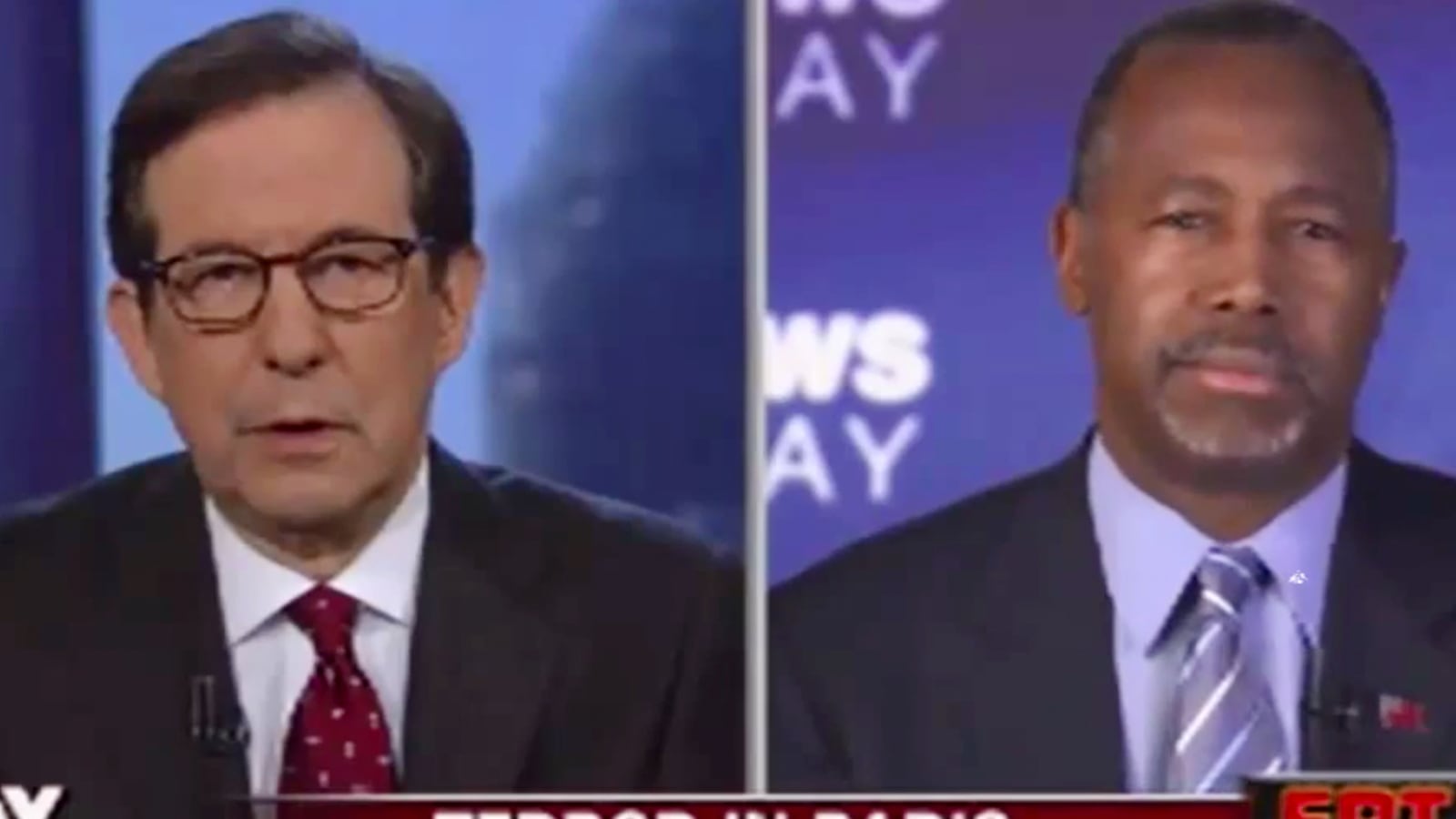In the wake of the horrific terrorist attack in Paris on Friday, Ben Carson has done a great job showing the world just how little he knows about foreign policy over and over again.
The most recent demonstration occurred Sunday, during an interview on Fox News Sunday, when the newly minted politician struggled to answer a question about U.S. military allies in the fight against the Islamic State.
“You have said that you would as president try and create an international coalition, militarily to go after ISIS,” host Chris Wallace said. “How would you put that together? Who would you call first?”
“Well, what I was just explaining, how we would use the resources that we have that includes some of our special ops people working in conjunction with an effective fighting force there,” Carson responded. “Those are the kinds of things that will create enthusiasm as we begin to take back the land, take back the areas, and, and damage their image throughout the world.”
This nebulous response mirrors Carson’s immediate reaction to the terrorist attack on Friday night, when he told a crowd in Orlando that he would use “things they don’t know about resources,” to target the vicious caliphate.
When Wallace gave Carson the opportunity to respond to the question again, the Fox host was rewarded with word salad.
“My point being that if we get out there and really lead and it appears that we’re making progress, then all of the Arab states and even the non-Arab states, who I think are beginning to recognize that the, the, the jihad movement is global,” Carson meanderingly said. “But if we fight it there, they will have to pool their resources in that area and then we won’t have to necessarily won’t fight them here. That’s all I’m saying.”
But the question remained: Who would Carson call first to initiate this plan?
“I would call for all of the Arab states to be involved in this,” Carson responded to the question when asked again. “I would call for all of our traditional allies to be involved in this. You know, I don’t want to leave anybody out.”
Yet, Carson did not name a single ally in this “traditional” roster. His campaign has not responded to a request for clarification on Monday.
Carson has been hawkish on military efforts against ISIS, backing a plan to put troops on the ground to combat the extremist group. He has also claimed that China is directly involved in the Syrian conflict and his answer to a foreign policy question in the last GOP debate was nothing short of mystifying.
A lot, if not all, of this consternation can be attributed to his primary foreign policy adviser, retired Major General Robert Dees, who has previously stated that the United States has “been infiltrated” by Muslim extremists. Dees, who also suggested this country could experience a Roman Empire-esque decline, did not respond to multiple requests for comments.
Carson has never been touted for his foreign policy chops and it’s unclear whether these consecutive confusions will have any damaging effects on his support base. He has demonstrated a clear lack of knowledge since at least March, at which time he told Hugh Hewitt that he was hopeful for an alliance between Shiite and Sunni Muslims and suggested that the Baltic states (already members) should join NATO.
As the violence in Paris has brought national security into the spotlight, Carson has tried to pivot and use neurological terminology to suggest that his policy prescriptions would be better than those of President Obama.
“To bring them over here, under these circumstances, is a suspension of intellect,” Carson said in response to a question about displaced Syrian refugees coming to the United States.
“The reason the human brain has these big frontal lobes as opposed to other animals is because we can engage in rational thought-processing. Animals, on the other hand, have big brain stems and rudimentary thinking because they react. We don’t have to just react, we can think.”
This thinking would also lead Carson to shoot down a Russian plane if it violated a no-fly zone agreement over Syria, even if it meant Russia could retaliate against a U.S. plane.
"If they violate it, we will, in fact, enforce it,” Carson doubled down in his answer on Sunday. “We'll see what happens. For us to always be backing down because we're afraid of a conflict, that’s not how we became a great nation, Chris.”
The answer made no sense, of course. But at least in the near term, that hasn’t seemed to matter to the Carson faithful.





